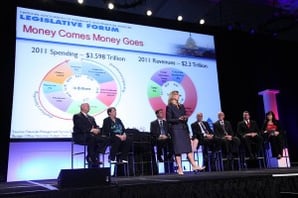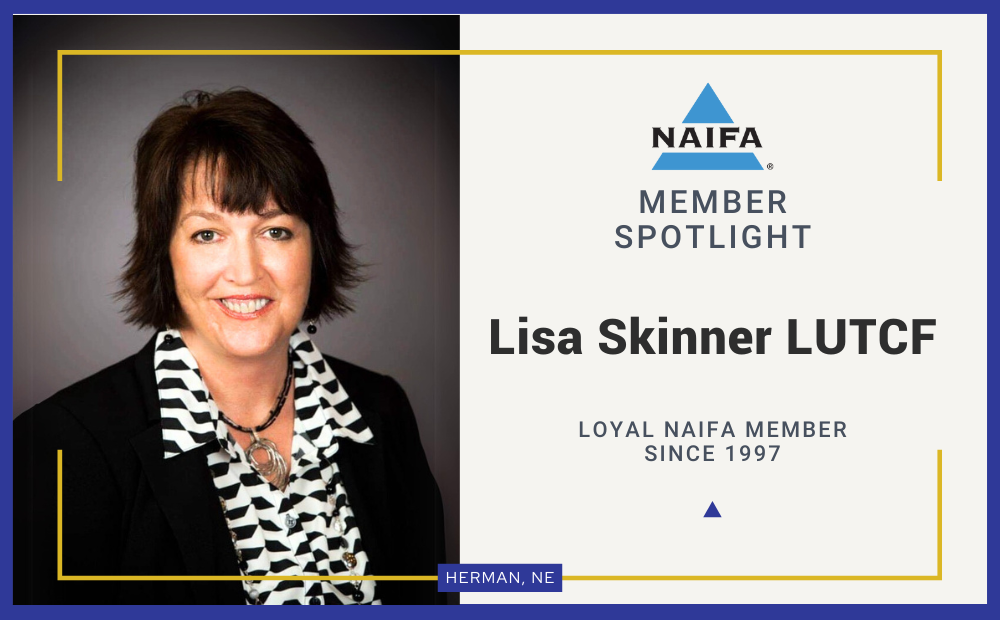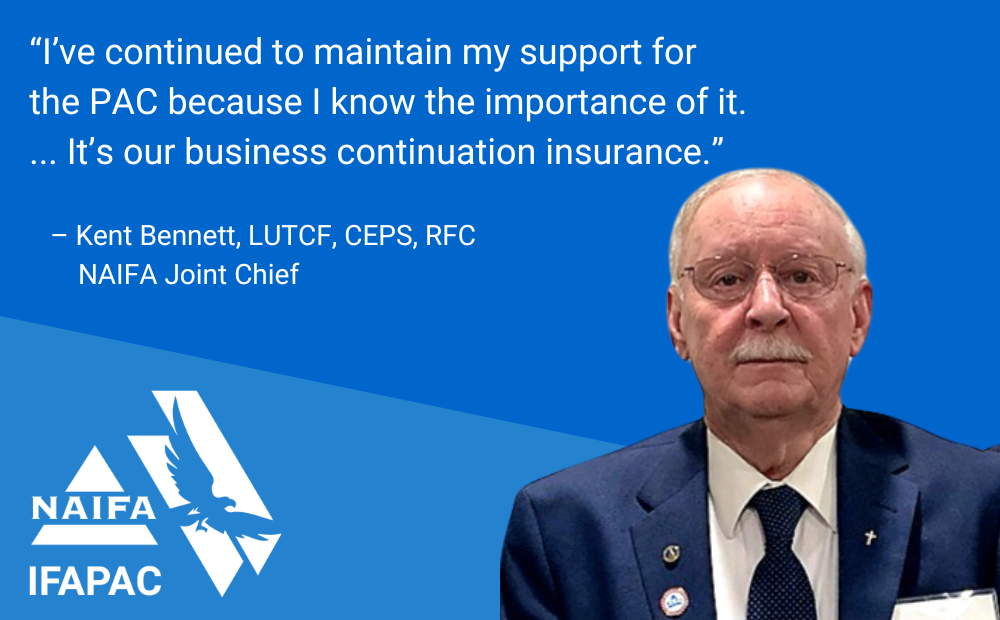Edward and Lawrence Woods saw a threat to their industry and took it upon themselves to make a difference. The year was 1913 and there was great uncertainty over whether the new federal income tax would impact death benefits and dividends from life insurance products.
Members of the National Association of Life Underwriters (today known as NAIFA), the Woods brothers were able to present their case personally to President Woodrow Wilson, and just days later the final version of the bill exempted insurance products from taxation under the new law.
NAIFA Senior Vice President of State Government Relations Bill Anderson related the Woods brothers' story to kick off the Legislative Forum at the 2012 NAIFA Career Conference and Annual Meeting.
History has not recorded exactly what the brothers told the president, but we can imagine that they made many of the same appeals NAIFA members make to their elected officials today: insurance products are crucial to the financial stability and success of American families across the country.
NAIFA consultant Danea Kehoe spoke about the present-day tax challenges that NAIFA faces. Congress must find a way to prevent up to $10 trillion in automatic spending cuts and tax increases if they fail to act by the end of this year. Failure to prevent the nation from plunging over the so-called “fiscal cliff” would almost certainly result in severe economic consequences, according to the vast majority of economists. Recession or a full-blown depression would likely ensue.
The answer, said NAIFA Vice President for Federal Government Relations Diane Boyle, is likely to be large scale tax reform. What exactly is tax reform? Both Democrats and Republicans agree that it would involve lowering rates and broadening the tax base.
In the long run, both sides will be looking to address what they see as tax expenditures, what Boyle said has been called the “underbrush” of the tax code. This is important because the insurance and financial industry accounts for $2.5 trillion in expenditures.
“What they call underbrush, we call the foundation for financial security,” Boyle said. It is important for NAIFA to drive the point home with members of Congress that the current tax treatment of insurance and annuity products is crucial to the financial well-being of millions of American families and small businesses.
Toward this end, she announced the NAIFA Congressional Conference, scheduled for April 8-9, 2013. NAIFA members will converge on Washington, D.C., and take the message directly to lawmakers that for the good of the country tax reform must not harm the ability of Americans to rely on insurance products to protect their financial security.
“NAIFA has the ability to put a member in front of every member of Congress,” Boyle said. “When you get in front of them eyeball-to-eyeball and explain the value of our products, they get it.”
NAIFA consultant Pat Raffienello followed up with a further appeal to NAIFA members to make their presence felt and their voices heard at the Congressional Conference.
The question Congress will have to consider as they reshape the tax code, he said, is: “Who is a loophole and who is a good investment by the government?”
“Democracy is about numbers,” he said. “We need you to tell Congress how important the tax status of our products is.”









.png?width=300&height=300&name=CC%202025%20Ad%20(300%20x%20300%20px).png)
.png?width=300&height=600&name=Tax%20Talk%20Graphic%20-%20email%20tower%20(300%20x%20600%20px).png)



.png?width=300&name=NAIFA-FSP-LH%20with%20tagline%20-%20AT%20blog%20email%20ad%20(300%20x%20250%20px).png)
.png?width=728&height=89&name=2024%20Congressional%20Conference%20(728%20x%2089%20px).png)
